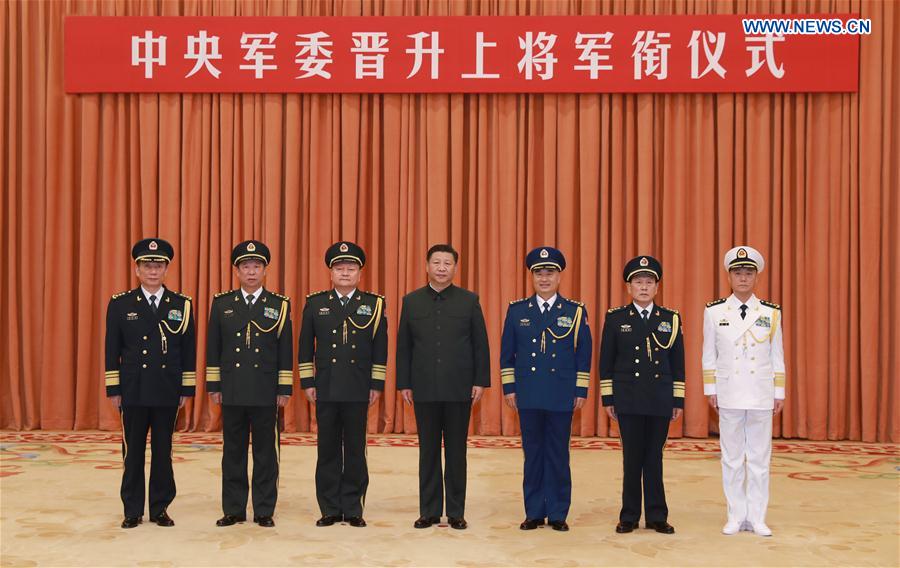|
|
|
The ceremony to release the Survey Report on Chinese People’s Understanding of Climate Change and Climate Change Communication is held at China Hall of Science and Technology, November 1st, 2017. [Photo by Zhang Liying / China.org.cn]
|
A survey released on Nov.1 shows 94 percent of respondents support China’s implementation of the Paris Agreement, while 96.8 percent agree the country should participate in international cooperation to tackle climate change.
Xie Zhenhua, China’s special representative for climate change, described the findings in Chinese People’s Understanding of Climate Change and Climate Change Communication as highly encouraging approval of the country’s efforts to deal with the threat.
The survey was conducted by the Center for China Climate Change Communication, the first think tank dedicated to climate change communications research and practice in developing countries.
Covering 4,025 ordinary people from China’s 332 prefecture-level administrative units and four centrally-controlled municipalities, it provided a comprehensive picture of public understanding of climate change in terms of causes, influence, methods of response, government policies and communication effect, etc.
More than 90 percent of the respondents support the central government’s measures in mitigation and adaption, indicating China’s commitment to addressing climate change is responding to public wishes.
While America is looking at quick ways of withdrawing from the Paris Agreement, China is intensifying efforts to contribute more to the global campaign.
Taking a driving seat in the cooperative international response to climate change, China has become an important participant, contributor and torchbearer in the global endeavor for ecological civilization, according to the report delivered by President Xi Jinping at the 19th CPC National Congress.
Seeing climate change as one of the unconventional security threats, China will continue to cooperate with other countries in tackling the problem to protect the planet for the sake of human survival.
Confronted with America’s slack attitude towards climate change, the world will expect much from China to meet the global challenge at the upcoming 2017 UN Climate Change Conference in Bonn from Nov. 6th to 17th.
With staunch public support, the Chinese government will be more confident in actively participating in global climate change governance, said Professor Zhang Haibin from the School of International Studies of Peking University, speaking at the ceremony to release the survey report.
